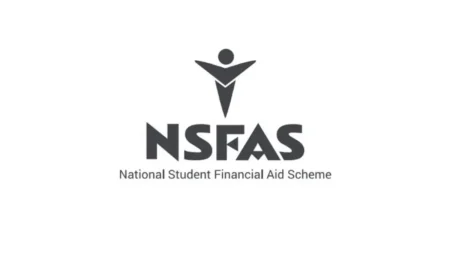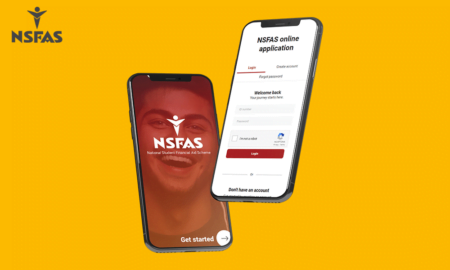Navigating the National Student Financial Aid Scheme (NSFAS) application process can be overwhelming, especially when confusing statuses appear. One such status is ‘Requesting Financial and Academic Data.‘ If you’ve encountered this message on your NSFAS portal, you might wonder what it means, why it happens, and what steps you should take next.
This guide will provide a detailed explanation to help you understand and address this status.
What Does NSFAS Do?
NSFAS is a government-funded financial aid scheme that provides financial assistance to South African students from low- to middle-income households. This funding ensures students can pursue tertiary education at public universities or TVET colleges without the burden of tuition and related expenses.
To determine who qualifies for funding, NSFAS evaluates both financial need and academic eligibility. The status ‘Requesting Financial and Academic Data‘ is part of this evaluation process.
What Does ‘Requesting Financial and Academic Data’ Mean?
The status ‘Requesting Financial and Academic Data‘ indicates that NSFAS requires additional information about your financial situation and academic performance to proceed with your application. This is a common step in the funding process and ensures that funding is allocated fairly and to those who meet the criteria.
Here’s a closer look at the two main components of this status:
1. Financial Data
- Definition: Financial data refers to information about your household’s income and financial situation.
- Purpose: NSFAS uses this data to confirm your eligibility for financial aid. To qualify, your total household income must not exceed R350,000 per year.
- Examples of Required Documents:
- Certified copies of your parent or guardian’s pay slips or proof of income.
- An affidavit if a parent or guardian is unemployed or working informally.
- Proof of social grants, if applicable.
2. Academic Data
- Definition: Academic data includes your school-leaving results or the most recent academic records from your current institution.
- Purpose: NSFAS needs this data to ensure you meet their academic requirements, such as passing your courses or achieving the necessary results to enroll in higher education.
- Examples of Required Documents:
- National Senior Certificate (NSC) results.
- Academic transcripts if you are already enrolled in a tertiary institution.
Why Does NSFAS Request This Data?
The ‘Requesting Financial and Academic Data‘ status appears for several reasons. Understanding why this happens can help you address the issue more effectively:
- Verification of Eligibility
NSFAS must verify both your financial need and academic achievements to ensure the funds are allocated to deserving candidates. - Missing or Incomplete Documents
If certain documents were not uploaded during your initial application or if they were unclear, NSFAS will request them again under this status. - Annual Reassessment for Returning Students
For students already receiving NSFAS funding, this status may appear during the annual review process to confirm ongoing eligibility. - Cross-Referencing Data
NSFAS works closely with government databases and educational institutions to validate the information provided. Discrepancies in your data may trigger this status.
How to Respond to ‘Requesting Financial and Academic Data’
If you see the ‘Requesting Financial and Academic Data‘ status, it’s crucial to act quickly to avoid delays in your application process. Here’s what to do:
Step 1: Log into Your NSFAS Account
- Access your NSFAS portal and review the details under the “Outstanding Documents” section.
- Identify the specific financial or academic records that are required.
Step 2: Upload the Requested Documents
- Gather the necessary documents, ensuring they are certified and up-to-date.
- Commonly requested financial documents include:
- proof of income.
- Sworn affidavits for unemployment.
- Copies of SASSA grant cards, if applicable.
- Academic documents may include:
- Your latest academic transcript.
- Matric results or proof of enrollment at a tertiary institution.
Related: How to Upload NSFAS Supporting Documents
Step 3: Double-Check for Accuracy
- Ensure that all documents are legible, certified, and meet NSFAS requirements.
- Incorrect or incomplete submissions could delay your application.
Step 4: Contact NSFAS for Assistance
- If you’re unsure about what is needed, reach out to NSFAS:
- Email: info@nsfas.org.za
- Toll-Free Number: 08000 67327
- Have your NSFAS reference number ready for quicker assistance.
Step 5: Follow Up
- Regularly check your NSFAS portal for updates or further requests.
- Stay informed about the progress of your application to avoid missing deadlines.
Related: Steps to Appeal a Rejected NSFAS Application In 2025
Common Mistakes to Avoid
When dealing with the ‘Requesting Financial and Academic Data‘ status, avoid these common errors:
- Ignoring the Status: Failing to act promptly can lead to delays or rejection of your application.
- Submitting Unverified Documents: Always ensure your documents are certified and up-to-date.
- Uploading Incorrect Files: Double-check that you are submitting the correct documents for the specific request.
- Missing Deadlines: NSFAS operates on strict timelines. Submit your documents as soon as possible to avoid delays.
What Happens After Submission?
Once you’ve submitted the required financial and academic data, NSFAS will:
- Review Your Documents
NSFAS verifies the accuracy and completeness of your submitted information. - Update Your Status
If everything is in order, your application status will change to the next step, such as “Funding Eligibility Approved” or “Awaiting Academic Results.” - Make a Decision
Based on the verified data, NSFAS will either approve or decline your funding application.
The ‘Requesting Financial and Academic Data‘ status is a standard part of the NSFAS process. While it may feel intimidating, it’s simply a request for additional information to ensure you qualify for funding. By responding promptly and accurately, you can keep your application on track and increase your chances of receiving financial aid.










